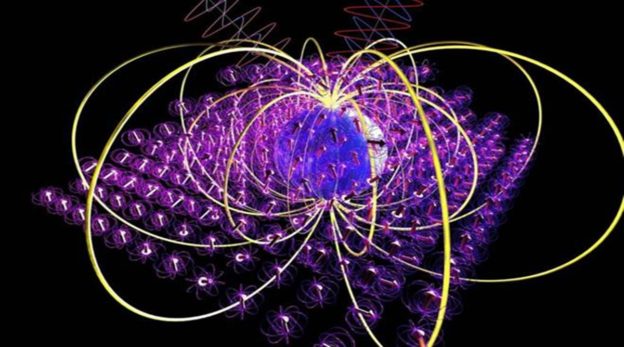According to an official statement by the Ministry of Defence, the project was curated by Innovation for Defence Excellence (iDEX) and Defence Innovation Organisation (DIO), and the Indian Army.
Indian Army has issued a commercial Request for Proposal and its deployment to the Bengaluru based start-up QNu for Quantum Key Distribution (QKD) communication systems.
According to an official statement by the Ministry of Defence, the project was curated by Innovation for Defence Excellence (iDEX) and Defence Innovation Organisation (DIO), and the Indian Army. Following the successful trials, the RFP was issued to the Deep Tech Start-up.
For India this is an important development as this is the second technology developed indigenously. Recently, a joint team of Defence Research and Development Organisation (DRDO) and Indian Institute of Technology (IIT) Delhi demonstrated QKD secured communication over 100 km.
What is Quantum Technology?
Quantum technology is based on quantum physics. Classical physics refers to the phenomena we observe day-to-day. On the other hand, with the advancements in science, it was established that these laws of physics did not hold at the sub-atomic level. “For example, while watching an F1 race, we can accurately tell the speed and location of a particular race car. However, let’s think an electron similarly revolves around the nucleus. We could only tell the electron’s speed or location at a specific point in time. Quantum mechanics, hence, evolved to study such phenomena. Quantum mechanics formed the foundation of all quantum physics, including quantum chemistry, quantum field theory, quantum technology and quantum information science,” explained an expert who wished to remain anonymous.
Also Read: Indian Army to leverage space expertise with Multi Domain Operations
In computer science, quantum technology is slated to be ground-breaking. The magnitude of use of quantum technology is often referred to as a breakdown of computers as we know them. But why?
Computers work as binary machines. When buying a new computer or mobile device, we often look at the amount of Random Access Memory (RAM) our devices have. In RAM and all other computer components, switches hold their value until changed. A quantum computer uses superposition, interference and entanglement between various qubits to solve such traditionally unsolvable (for binary computers) tasks. According to the expert quoted above, “There is already Shor’s algorithm that can determine the prime factors of an integer using a quantum computer. This is the real threat to our technological reality because our use of computers and the internet is deeply entrenched in using passwords. These passwords depend on the inability of other computers to reach a prime number without knowing the password to secure devices and communications. A quantum computer will be able to brute force a series of prime numbers to crack the encryption and, at once, put at risk all of the banking, defence, healthcare, etc., that we keep safe behind cryptographic magic.”
How India is pushing for Quantum Technology Innovation?
Even though quantum technology research is in a nascent stage, it will have a value addition of about half a billion dollars in the next 15 years, according to the Boston Consulting Group. Many technology firms, governments and academia have been after quantum advantage. In 2021, researchers in China claimed to have achieved quantum supremacy, something Google had demonstrated in 2019.
So far, Canada, France, Germany and India, too, have committed over a billion dollars toward development. In 2020, India established its National Mission for Quantum Technology and Applications (NM-QTA). And it hasn’t been a one-sided effort. The industry has been keen to develop key quantum technologies in India. D-Wave, a quantum computing cloud service provider, stated that Indian users formed its third most extensive user base. India has also joined Finland to cooperate toward a virtual network centre on quantum computing.
Private players like Mphasis have recently announced a MoU with IIT Madras to accelerate fundamental and applied research in quantum computing, HCL, has signed a similar MoU with Sydney Quantum Academy. The sector giants like Tata Consultancy Services are interested even more in making moves.
The next line of defence
According to sources, “Quantum technologies are expected to evolve space-based navigational systems like the GPS. There are myriad applications in submarine detection, radars and sensors for the military. Currently, the critical use has been in communication. China launched a quantum satellite which facilitates ultra-secure communication between two ground stations separated by 1000 km. Quantum technology is bound to be crucial for intelligence, surveillance, target acquisition and reconnaissance. Apart from processing, quantum sensing on individual vehicles and satellites will be the game changer. A quantum radar could potentially be used in space warfare. Another critical use of quantum technologies will be underwater warfare, increasing the ability to detect submarines and mines.”
A testament to the broad-ranging capabilities of quantum technologies is the possibility of use in new material design. “Superconducting Qubits (SQUIDs) can solve the problem of superconducting materials at room temperature. This will revolutionise the defence industry research in camouflage, stealth, ultra-hard armour or high-temperature tolerance material,” explained the expert.
India has taken the driving seat of innovation in the quantum space. And with a combined effort of both private and public sectors, there is much potential for actualising the country’s quantum goals.
https://www.financialexpress.com/defence/india-75-achieves-key-milestone-in-quantum-technology/2630587/?utm_source=defence_landing_page&utm_medium=article_listing_widget&utm_campaign=Tags





